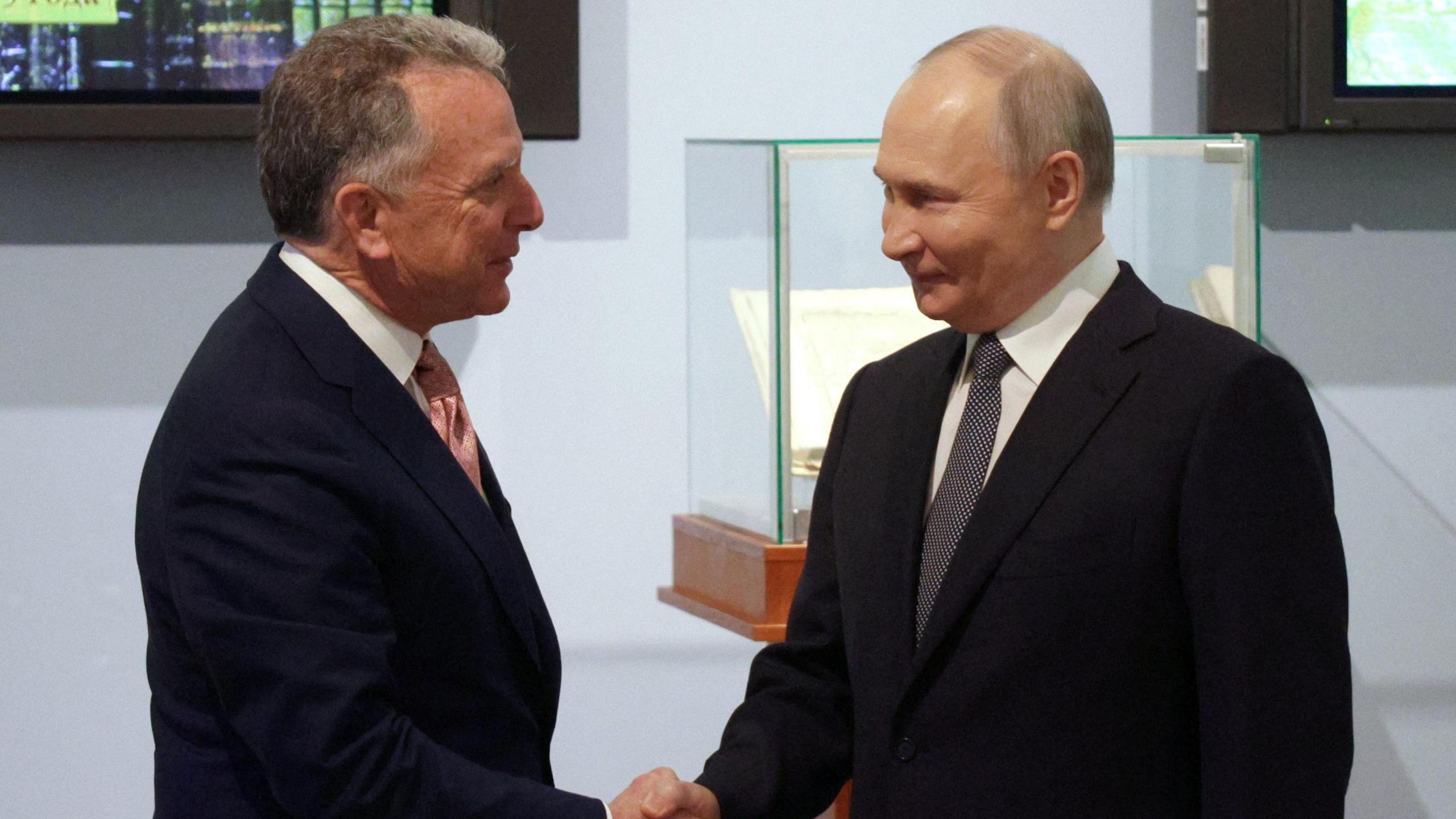Ukraine's Commissioner for the Protection of the State Language, Taras Kremin, rejected recent statements by US Special Representative for the Middle East Steve Witkoff suggesting Russia could maintain control over certain Ukrainian regions based on their Russian-speaking status.
These comments came after Witkoff had met with Russian President Vladimir Putin in St. Petersburg on 11 April.
The Trump administration is attempting to negotiate a peace deal between Ukraine and Russia. The US proposed a seven-point peace plan to Ukraine, including de jure recognition of Crimea as Russian territory and de facto acknowledgement of Russian control over Luhansk, Donetsk, Zaporizhzhia, and Kherson oblasts. However, President Zelenskyy rejected these terms, demanding a full ceasefire before any negotiations.
Meanwhile, Kremlin spokesperson Dmitry Peskov declared Russia’s willingness to end the war if Ukraine withdraws from four occupied regions and accused Europe of prolonging the war by sending military aid to Ukraine, claiming that Russia "pursues peace." Russia's recent massive, deadly attacks on civilians tell otherwise.
"I want to caution that discussions about language, especially by our allies, do not align with our international agreements and the treaties we actually have," Taras Kremin said during an appearance on Svoboda.Live, Radio Liberty reports.
Russian propaganda actively promotes the false narrative that Ukraine bans the Russian language and persecutes the Russian-speaking population. While Ukrainian is recognized as the sole official language for government, education, and media, many Ukrainians still speak Russian in private or public conversations.
Kremin pointed out that Donald Trump, after beginning his second presidential term, signed a decree establishing English as the sole official language of the United States. He drew a parallel between language policy and national unity.
"Who better than him would know how important it is to maintain national unity and integrity of his state," Kremin noted, adding that what Russian propaganda promotes is "absolutely unacceptable either for ordinary US citizens or for the civilized world."
The language commissioner emphasised that Ukraine's linguistic landscape has changed significantly during the 11-year conflict, with the majority of Ukrainian citizens now preferring to use Ukrainian in both official and private settings, regardless of their region. Meanwhile, he noted that Russian authorities continue to implement policies of Russification in occupied territories.
"Since 2014, numerous cases of linguicide have been recorded, as well as humiliation of people and destruction of national identity, which we continue to document in the temporary occupation," he stated.
The Institute for the Study of War (ISW) warned that Witkoff’s statements reinforce false Kremlin narratives, undermine the US position on Ukraine’s sovereignty, and risk ceding leverage to Russia ahead of any peace negotiations. The think tank concluded that Witkoff's claims directly contradict international law and the reality of ongoing Russian aggression, including efforts to suppress Ukrainian identity in occupied areas.
In response to Witkoff’s statements to recognize Russian illegal referendums, the European Commission emphasized that they were fraudulent and conducted "at gunpoint," reaffirming unwavering support for Ukraine’s territorial integrity.
A January survey conducted by the Ilko Kucheriv Democratic Initiatives Foundation and the Razumkov Center found that 78% of respondents identified Ukrainian as their native language, compared to 60% a decade ago. Only 6% now consider Russian their native language, down from 15% ten years earlier.
The survey, conducted between 29 November and 14 December 2024, included 1,518 respondents living in government-controlled territories of Ukraine where there are no active hostilities.

